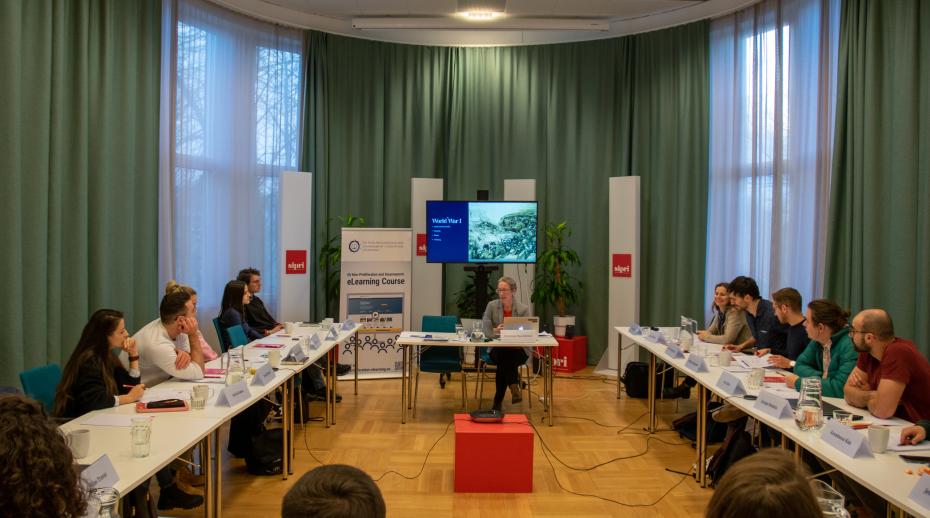
On 6–8 December 2022, SIPRI and the European Union Non-Proliferation and Disarmament Consortium (EUNPDC) hosted an intensive introductory course on the proliferation of weapons of mass destruction (WMD), mechanisms to control their further spread and pathways to disarmament.
Held in Stockholm, the course brought together 19 international graduate and postgraduate students of engineering disciplines. This course was also a networking opportunity for the next generation of academics, researchers and policymakers in the field of disarmament and non-proliferation. Dr Sibylle Bauer, Director of Studies, Armament and Disarmament, and Vitaly Fedchenko, Senior Researcher with the SIPRI Weapons of Mass Destruction Programme, delivered welcoming remarks for the programme. Participants were trained by leading experts in the field of WMD non-proliferation, arms control, disarmament, nuclear security, forensics, export controls, verification and related subjects from SIPRI, as well other European and United States research centres, think tanks and international organizations.
Participants engaged in a three-day intensive programme of lectures and discussions covering the fundamentals of biological, chemical and nuclear weapons, as well as of missiles and other means of WMD delivery; threats associated with the military use of WMD and potential terrorist uses of chemical, biological, radioactive and nuclear (CBRN) material (i.e. CBRN terrorism); arms control treaties; WMD-free zones; non-proliferation treaties and means of their verification; export controls; and mechanisms aimed at achieving disarmament. The course also examined the impact of new and emerging technologies, and the role of the engineering industry in preventing the spread and use of nuclear weapons.
SIPRI and the EUNPDC will continue to develop courses of this kind and host them twice a year.